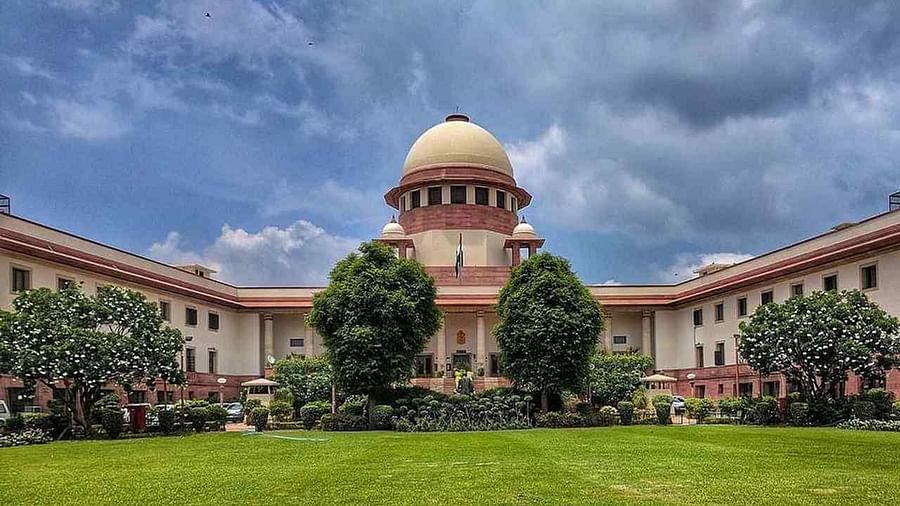The Supreme Court on Monday declined to vacate a stay by the Gujarat High Court on the implementation of certain provisions related to interfaith couples in the Gujarat Freedom of Religion (Amendment) Act.
The Gujarat Government had challenged the HC’s stay order of August 19 and its refusal to issue a rectification order in the apex court claiming that it had no political agenda behind the legislation.
The apex court, however, declined the state’s plea to interfere with the high court order. The SC issued notices to the state, returnable on April 1.
On August 27, 2021, the Gujarat High Court had ruled that it did not find any merit in the state’s application to give a revised order.
A division bench of Chief Justice Vikram Nath and Justice Biren Vaishnav had stayed the operation of Section 5 of the law that seemed to interfere in interfaith marriages of concession adults.
State Advocate-General Kamal Trivedi had submitted that Section 5 had little to do with marriages. He had said that the particular section was about the need for district magistrate’s permission to any individual wishing to convert to another religion without force and allurement. With this August 19 stay order, even this provision would not be operational.
Read: Love Jihad Law: SC Upholds Gujarat HC’s Interim Order
To this, the high court had observed that the stay order was not entirely on Section 5 but on its invocation in the cases of marriage without force or allurement.
Appearing for the petitioner, Senior Advocate Mihir Joshi had argued that if Section 5 of the Act was not included in the stay order, then the Court’s entire order won’t operate and thereby, the Order of the Court becomes unworkable.
He also argued that if somebody wants to get married (inter-religious), the presumption is that it is unlawful unless permission is taken under Section 5. Since the Court has stayed Section 5 only in relation to marriage between consenting adults, the provision will not be deemed to be stayed for individual conversions, he added.
Explaining the order in a layman’s language, the Chief Justice had said, “Supposing X is a bachelor, he wants to convert, he would require permission under Section 5 of the Act, we have not stayed that. Only permission for marriage has been stayed. Read what we said, we said the rigors of Section 3, 4, 4A to 4C, 5, 6, and 6A shall not operate merely because marriage is solemnized by a person of one religion with another religion without force or allurement or fraudulent means and such marriages cannot be termed as marriages for the purposes of unlawful conversion.”
The operative part of the Gujarat High Court’s August 19 order was thus:
“After recording the preliminary submissions and arguments advanced, we have directed as follows. We are therefore of the opinion that pending further hearing, the rigors of Section 3, 4, 4A to 4C, 5, 6, and 6A shall not operate merely because marriage is solemnized by a person of one religion with another religion without force or allurement or fraudulent means and such marriages cannot be termed as marriages for the purposes of unlawful conversion. The above interim order is provided only on the lines of the arguments made by the learned Advocate General Trivedi and to protect the parties of inter-faith marriage from being unnecessarily harassed”.
While protecting inter-faith marriages by consenting adults from the rigors of the Gujarat Freedom of Religion (Amendment) Act 2021, the Gujarat High Court, on August 19, prima facie observed that the law “interferes with the intricacies of marriage including the right to the choice of an individual, thereby infringing Article 21 of the Constitution of India”.














